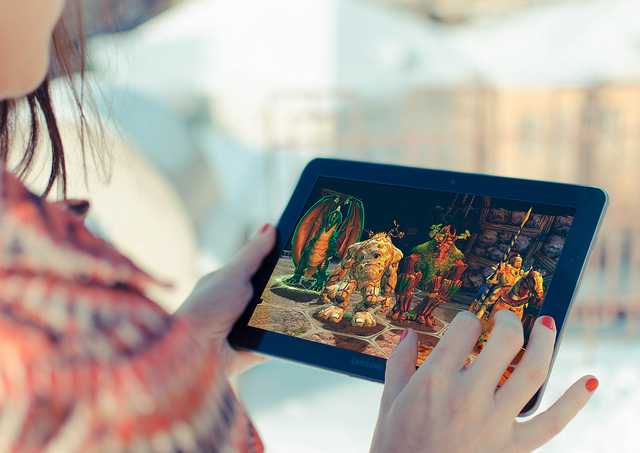Last year, an article from Microsoft about humans’ decreasing attention span tickled the tabloids – technology stopped giving the populace square eyes in the eighties and started to erode our ability to focus instead – but the study was pessimistic on several levels; chiefly because some combinations of tech and software may actually be good for modern brains.

Mobile Apps
Humans are used to things being on-demand and always connected, and many aspects of life have become easier as a consequence. Outlets offering same-day delivery take the sting out of a broken appliance or a forgotten Valentine’s gift, while the popularity of mobile apps means that banking and buying lottery tickets no longer involve a lengthy trip to the city.
On that latter point, the difference mobile technology makes is evident in the rise of companies like Lottoland, a website that allows people to play lottery on iPhone or Android. Global lottery sales grew an average of 8% a year between 2010 and 2014, according to figures from Statista, an increase that’s testament to the flexibility that mobile play offers gamers. It’s not just the fact that people can play in the bath or on the sofa; Lottoland gives users the option to buy tickets for international games like the Spanish El Gordo.
But is the price of on-demand services and our desire for instant gratification our collective attention span?
Advertising
Microsoft’s research wasn’t really designed for mainstream consumption – it was made by and for advertisers, who work in fractions of a second as far as attention span is concerned. From that perspective, it’s easy to see why our attention span might have declined; the overwhelming number of adverts people see on a daily basis has made humans more adept at tuning them out.
According to The Guardian, people are exposed to more than 3,500 adverts every day but we only acknowledge a very small number of them (around 1% or 35). It’s not so much that we can’t focus; it’s that we’ve learned not to pay attention to things we aren’t interested in.
Human attention span is adaptable according to the scenario we are placed in – people are just as likely to spend an uninterrupted hour on a single task, like reading, drawing or coding, as they are to cancel their Netflix subscription because the app took more than a few seconds to load a Gilmore Girls episode.
Granted, modern people are pre-conditioned by the media and internet stores to believe that impatience truly is a virtue but high expectations and a decline in our mental abilities are two completely different things. So, if tech isn’t rotting our minds like our parents promised, what is it doing to us?

Mental Acuity
First of all, spending 24 hours a day doing anything – from yoga and reading books to swimming – is going to have consequences in the long term but moderate tech use poses few proven threats, especially as far as interactive media like video games are concerned.
For instance, a piece of research published in Acta Psychologica back in 2008 indicated that veteran gamers were more proficient at tracking moving objects, switching from one task to another, and at rotating objects in their mind. The link between fast-paced titles in particular and mental acuity has even prompted the development of games specifically designed to ward off degenerative conditions in seniors.
The University of California monitored people playing a custom-designed game called NeuroRacer to see if their ability to multitask while driving a (virtual) car improved. While the results are hard to find in a quantified state, the neurological activity of people in their eighties resembled that of twenty-year-olds after twelve hours of play.
As a final point, and a way to put the above into numbers, a 2015 BBC experiment had volunteers play racing game Sonic All Star Racing, and monitored their attention span and memory over the course of the study. The control group reported a 30% increase in both fields after 15 hours of gameplay.



